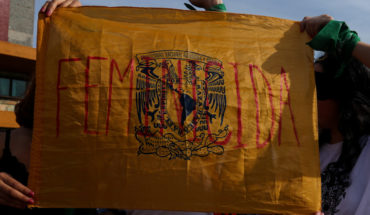Around September and the number of overlapping moments in popular memory it is important to observe a growing denial is on the mainstream media. This analysis is not intended to promote types of censorship or inhibition of ideas in public opinion, but the purpose of reflecting on relational frameworks that violate certain current characters of the far-right radical in our country and the world and diagnose an evil that is deeper than the facistoid tufo of the apologists to state terror, a problem that concerns all of us who believe in the self-determination and freedom of peoples and individuals respectively.
During the days of the eleventh of September of this year in a morning we can see a denier deputy taking coffee, in the news of noon we see Andrés Chadwick (ex-personero of Pinochet) denying the possibility of homages regarding the fateful date in Palacio and then his cousin the President of the Republic relativizing a dictatorship, or as he prefers to call it “military regime”, condemning the suspension of democracy, but sliding that before 73 the gloom was even greater. A few years ago, after the fortieth anniversary of the destruction of institutionality and where as a country we we weep, reflect and embrace, backhoes appear that not only blur the learnings about the consequences of terrorism State, but today several young opinion leaders from the right broaden the questioning to other topics and subjects; exemplified:
Axel Kaiser, columnist of various media, when he intends to make a column of criticism of Carlos Marx’s capital ends up arguing that he was lazy or bourgeois, when he wants to criticize the global movement that has been deployed by the climate crisis disqualifies her spokeswoman by indicating her young age and Asperger’s diagnosis to question her leadership and those who see her as a reference. What for some seems to be one of the most important liberal lights of the last time—because of its level of figuration and relevance in certain environments—publicly bases its discursivity on direct personal attack, a logical error described already from Greece based on disqualifying an interlocutor by questions of personal questions which are irrelevant to what is disputed. However beyond his columns stuffed in fallacious arguments in traditional media the moment culminated in the narrative of the irrationality of the director of the Foundation for Progress was when he presented his famous performance of the false dichotomy between Bad and less bad dictatorships before Vargas Llosa reaching a new horizon in the promotion of irrationality, casting a lively voice for the infaced who love “political incorrectity”, a concept that seems to have a problem beyond the political.
I regret to have referred so extensively to this unique character of the political-business scene, however it is of great use to exemplify a problem of collective memory that does not arise only from the forgetfulness of the recent history of the country. This specimen serves to see that what is now sold as “political incorrectity” in many cases is nothing more than apathy to thought that sells for conflicting something that is indeed, not because it makes the “progress” uncomfortable or the generation “snowflake” but to the “snowflake” generation but to the “snowflake” generation but to the “snowflake” generation but to the “snowflake” generation but to the “snowflake” generation that because his reasoning dispenses with a plot, logical and rational order, in what dialogue is impossible. The support of his speech is the construction of straw men, direct attacks, clubs and poisons of the well – among other fallacies – that cross any kind of rational conversation.
Giving grandstand to such opinions serves to recognize tyrants of thought who are raving against memory, not only because of the memory of what happened in Chile but for the destruction of Western logic and reason, a tradition that for years settled Hipatia of Alexandria, Plato, Hegel or Descartes, among many others, who paid billions of pages consolidating reasoning and logic as a fundamental heritage of humanity.
I share Ascanio Cavallo’s view that freedom of expression must always be defended as an absolute, not relative, value. Now, the discussion remains whether the media should be silent and complicit in this pseudo opinology, since the sense of discourse of people who still today deny genocide, or worse, claim policies of terror and death, promote scientific revisionism or twist historiography must be transparent, known with a pedagogical purpose of teaching the implications of denying reason in social and cultural construction or so that it can ultimately be described the human capacity of, having all the tools, mock tens of centuries of human knowledge and experience. This definition of the means is necessary to transparent these fallac speeches effectively, publishers must take a stand and make a never again regarding their silent complicity.
If the liberal media has given wide grandrels to these jackals of memory it means that they lost the battle against obscurantism and that is not possible, or they regain faith or we recover the media. Perhaps in a future time it will not be the eleven that is forgotten but the sense of eating empanadas at homeland parties or it will not be that of so much “political incorrectity” we irritate the “globalizing jargon” and we will forget the language.
The content poured into this opinion column is the sole responsibility of its author, and does not necessarily reflect the editorial line or position of El Mostrador.





